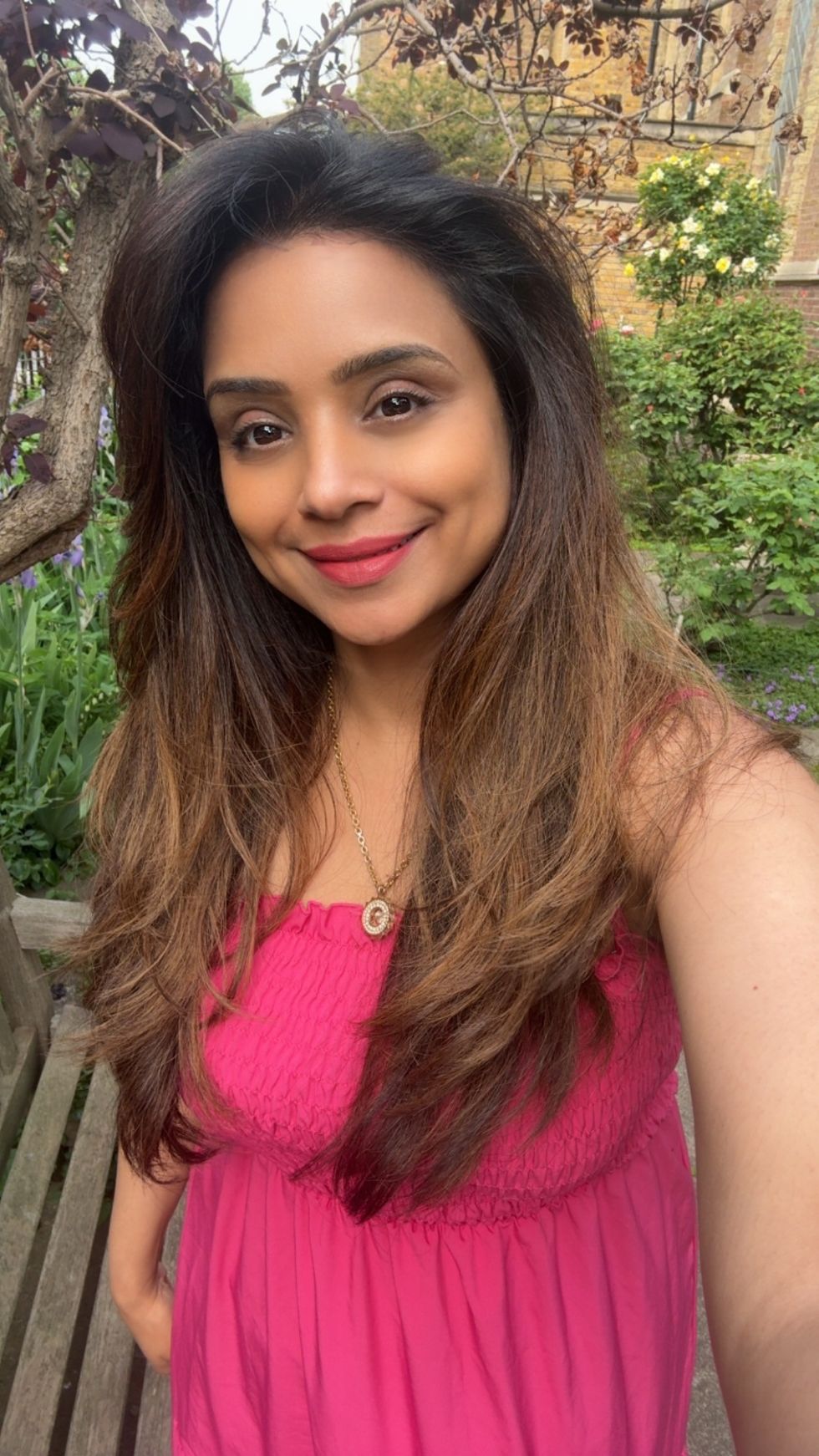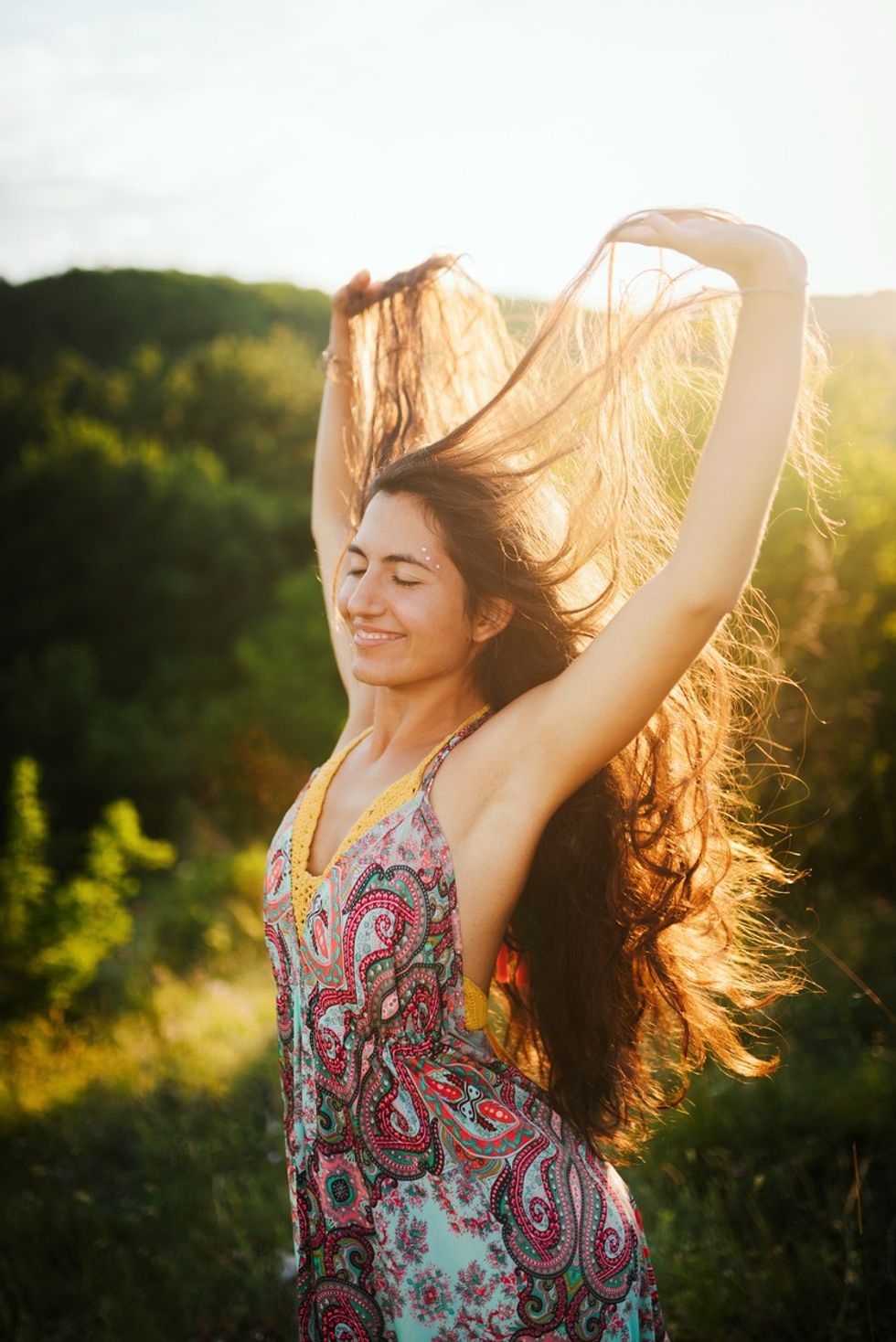By Asjad Nazir
PUNJABI cinema has had an impressive global surge in the past decade - and British actress Mandy Takhar has been part of that revival with challenging roles opposite big-name stars.
The Wolverhampton beauty will next be seen in soon-to-be-released film Rabb Da Radio, which is a 1980s-set drama weighing up right against wrong.
The musical continues the momentum generated by Mandy in recent years and shows off her
impressive range. Eastern Eye caught up with her during a trip back to the UK to talk about Rabb Da Radio, Punjabi cinema, future hopes, inspirations, and the advice she would give those wanting to follow in her footsteps...
Were you always confident growing up?
As I was growing up, I saw and experienced a lot that made me question all aspects of life, including why we are alive. This questioning of everything gave me the confidence that I was made to do great things and kind of started me on my journey.
Although I was a confident youngster, some experiences as an adult took away that childlike self-belief I once had. So I had to work hard to regain that innocent invincible confidence. I had to do a lot of work on my inner mind and have used that in my career.
When did you first decide you wanted to be an actress?
(Smiles) I think I knew I wanted to be an actress when I was about eight years old. I felt I had the ability to express and understand human emotions quite well, even at that age. I think it’s like anything in life; once you know what you want to do, you just know. I knew I wanted to be an actress from early on.
Most aspiring British Asian actresses want to pursue a career in Bollywood or in the West. What made you want to be a part of Punjabi cinema?
It’s who I am! I am a proud Punjabi and have been brought up in a very Punjabi environment. Being Punjabi comes naturally to me. I want to help take Punjabi cinema to the
next level of excellence in its quality of films made. I am really proud of how far the industry has come and am confident it will grow even bigger. I really want to be a part of that. It’s a very exciting time in Punjabi cinema.
You have perhaps been the biggest success story in terms of British Asians making it in Punjabi cinema. What has been the biggest challenge of breaking through in that industry?
It’s not the breaking through that’s the challenge. I think if you work hard and know your craft, you will get noticed. The big challenge is sustaining yourself in any field for years and that too in another country. (Smiles) But I am a one-woman army and have never had an agent backing me or any influential friends who can get me work. So for me, it’s about being the best at what I do so people feel the need to come to me to do their vision justice.
Which of the projects has been your favourite so far?
Every character or film you do, no matter how big or small, enables you to grow as an actor. So all the projects are close to my heart because each has taught me so much. But right now my obsession is Rabb Da Radio, which is about soul-searching and soul connections.
Who has been the most interesting person you have worked with so far?
It has to be Diljit Dosanjh. He makes you want to wake up at 6am and run the race called life. He is a very hard-working, sincere and talented artist. He is very deserving of the immense success he has today and more power to him.
Tell us about your new film Rabb Da Radio?
It is a wonderful film that we are all immensely proud of. I play Naseeb Kaur in the 1980s-set story about the connection between two women who happen to be sister-in-laws. It’s about facing the consequences of wrong actions, doing the right thing, and then seeing the results. It’s about doing what resonates with your higher self as opposed to what society dictates, and this is a message carried forward by my character. It is possibly the most challenging and intense character of my career.
What was the biggest challenge of acting in the film?
The challenge was to convincingly play a wife, daughter-in-law, sister-in-law and niece in 1980s Punjab. It took a huge transformation for me within to become a character completely the opposite of my real life upbringing and persona.
What is your favourite moment?
This movie has given me so many memorable moments in front of the screen and behind the scenes while shooting it. But if I had to choose one, it is when my character does the right thing and finally faces the person she has wronged. It’s a powerful moment and one that will resonate with audiences. It shows that it’s never too late to do the right thing.
You must be happy with the progress that Punjabi cinema is making globally?
All of us working in Punjabi cinema are extremely happy! I am fully committed to the industry and will do my best to make sure it continues to reach greater heights.
Why do you think Punjabi cinema is doing so well?
The quality of the scripts and storylines are getting better, and producers are also investing
more money to make the projects appealing. We also have a great pool of talent, which is growing.
Have you made a masterplan going forward in your career?
(Laughs) I make masterplans and they change daily, but that not knowing is the beauty of life.
What would be your dream acting role?
I want to go out of my comfort zone and explore the unknown in challenging roles. (Laughs)
Like I would wanna kick some ass on screen in a Lara Croft-style role that enables me to do
stunts and beat up bad guys.
What is your favourite movie of all-time?
I really loved the movie Chaalbaaz, where Sridevi plays two sisters with contrasting personalities. One beaten by bad guys and the other beating those bad guys. It used to inspire me as a kid to always stand-up for yourself. I also love Jerry Maguire and watch it when I need a kick or inspiration. It teaches one to never give up on themselves or their
loved ones, and it’s okay to make mistakes as long as you can face them and move along.
What would you say is your most Punjabi quality?
Punjabi people are known to be very optimistic and never lose hope no matter the situation. We tend to laugh off pain. So that optimism is my most Punjabi quality.
Tell us something that not many people know about you...
I am super sensitive! I will laugh when I’m most hurt in public and probably cry myself to sleep later.
What else can we expect from you?
You can expect magic, entertainment and films that will make you question life. I am also
looking at some interesting projects away from cinema and will talk about them when the
time is right.
What inspires you?
If you look, there is inspiration all around us. I am inspired most by anybody who doesn’t give up on themselves.
What advice would you give British girls wanting to make a mark in Indian cinema?
It’s hard work and requires a lot of dedication. Only pursue a career in Indian cinema if you have a thick skin and are truly passionate about the craft of acting. If you just want to be a star, then the film industry is not for you.
Why should we watch Rabb Da Radio?
It is a lovely film and we have worked really hard on it. It will make you question your own actions in life and help connect you to yourself and to unconditional love.
Why do you love cinema?
I love cinema because it heals me. It enables me to evolve and grow. Cinema takes me to a world I love being lost in and transports audiences along with me.
Rabb Da Radio is in cinemas on March 31





 Wintour also became synonymous with the Met GalaGetty Images
Wintour also became synonymous with the Met GalaGetty Images











 Your hair benefits from sun protection tooDimps Sanghani
Your hair benefits from sun protection tooDimps Sanghani Both chlorine and saltwater strip hair of natural oils, leaving it brittleiStock
Both chlorine and saltwater strip hair of natural oils, leaving it brittleiStock Using too many styling products in hot weather can weigh hair down and attract grimeiStock
Using too many styling products in hot weather can weigh hair down and attract grimeiStock